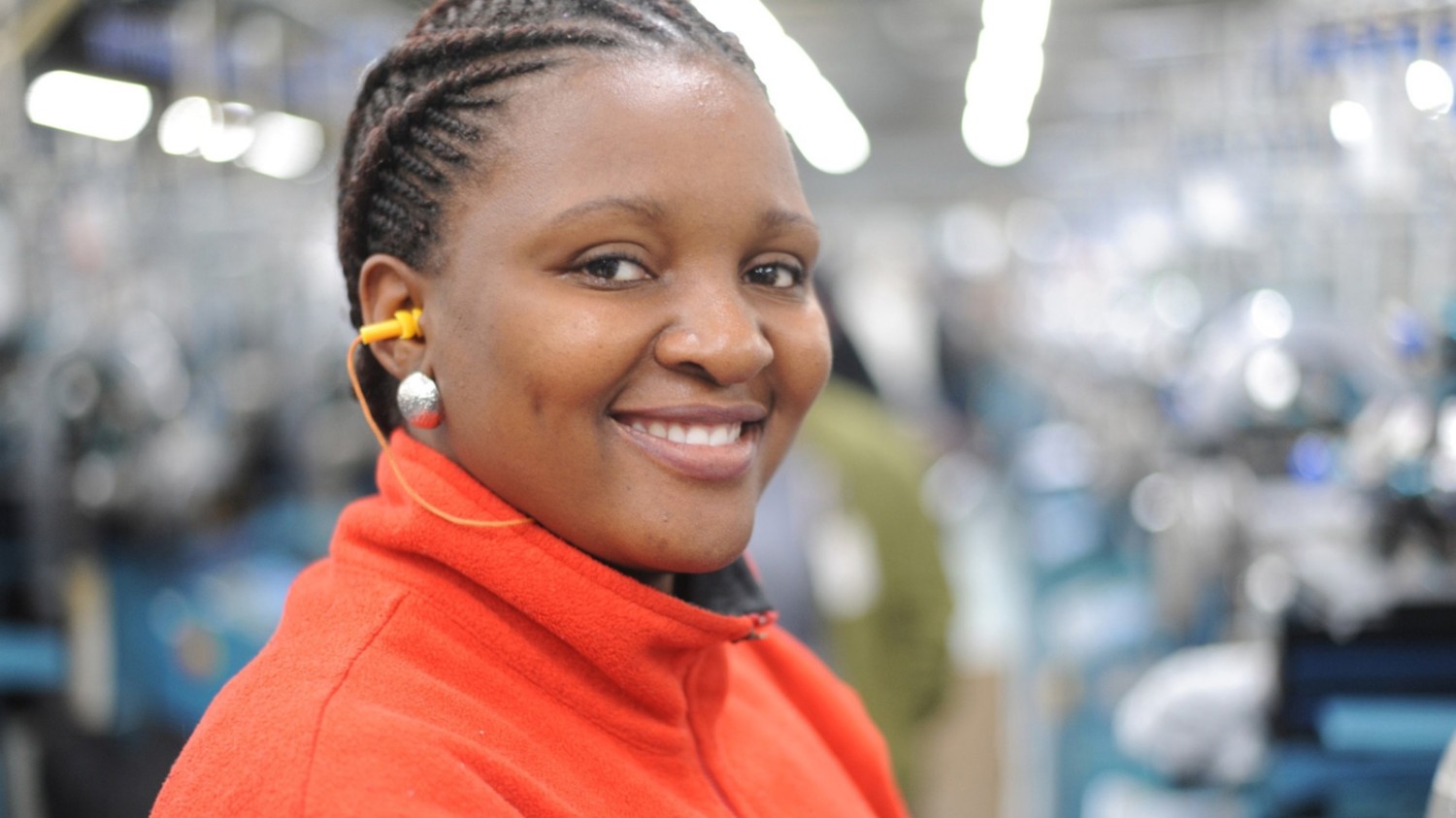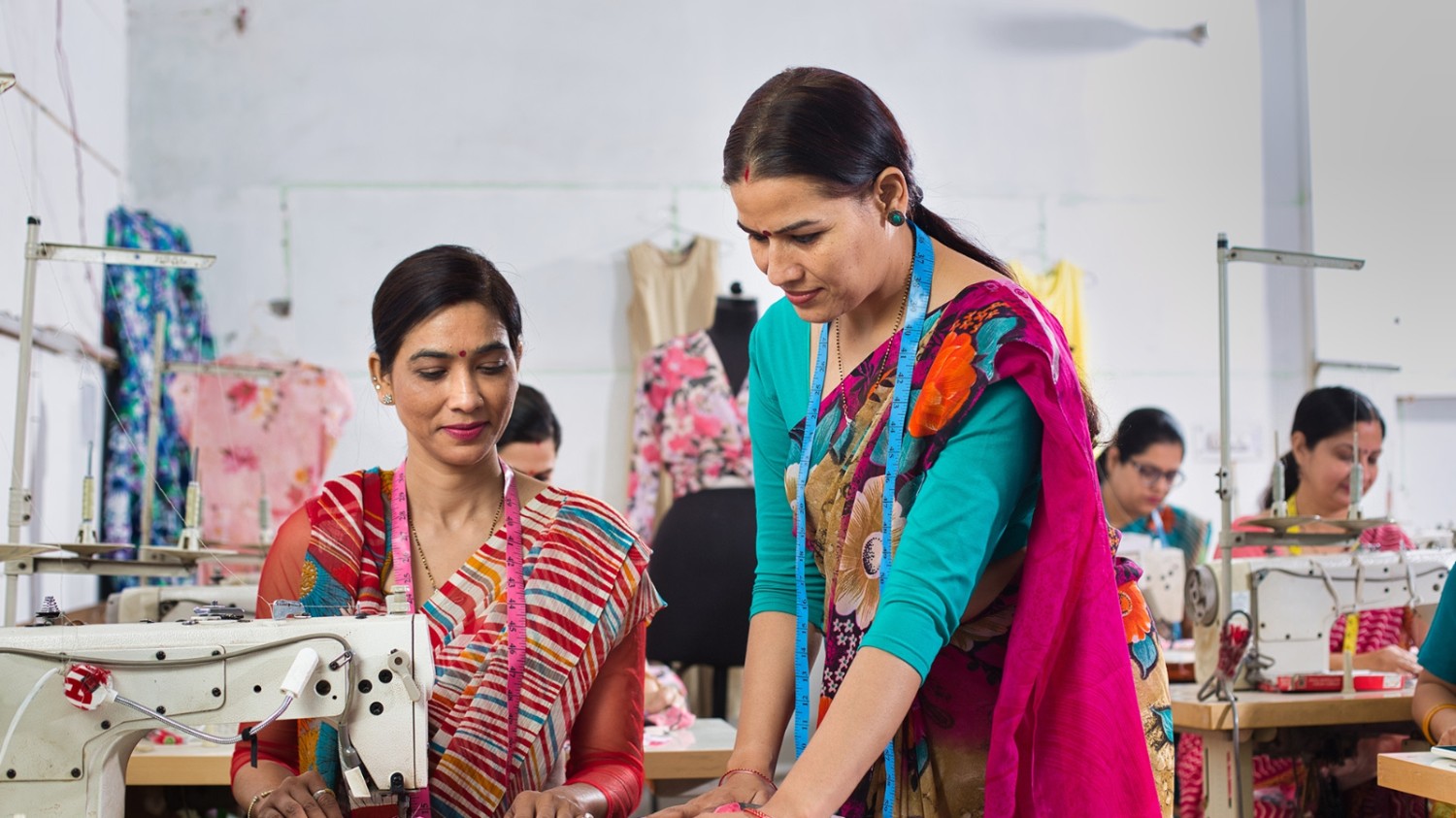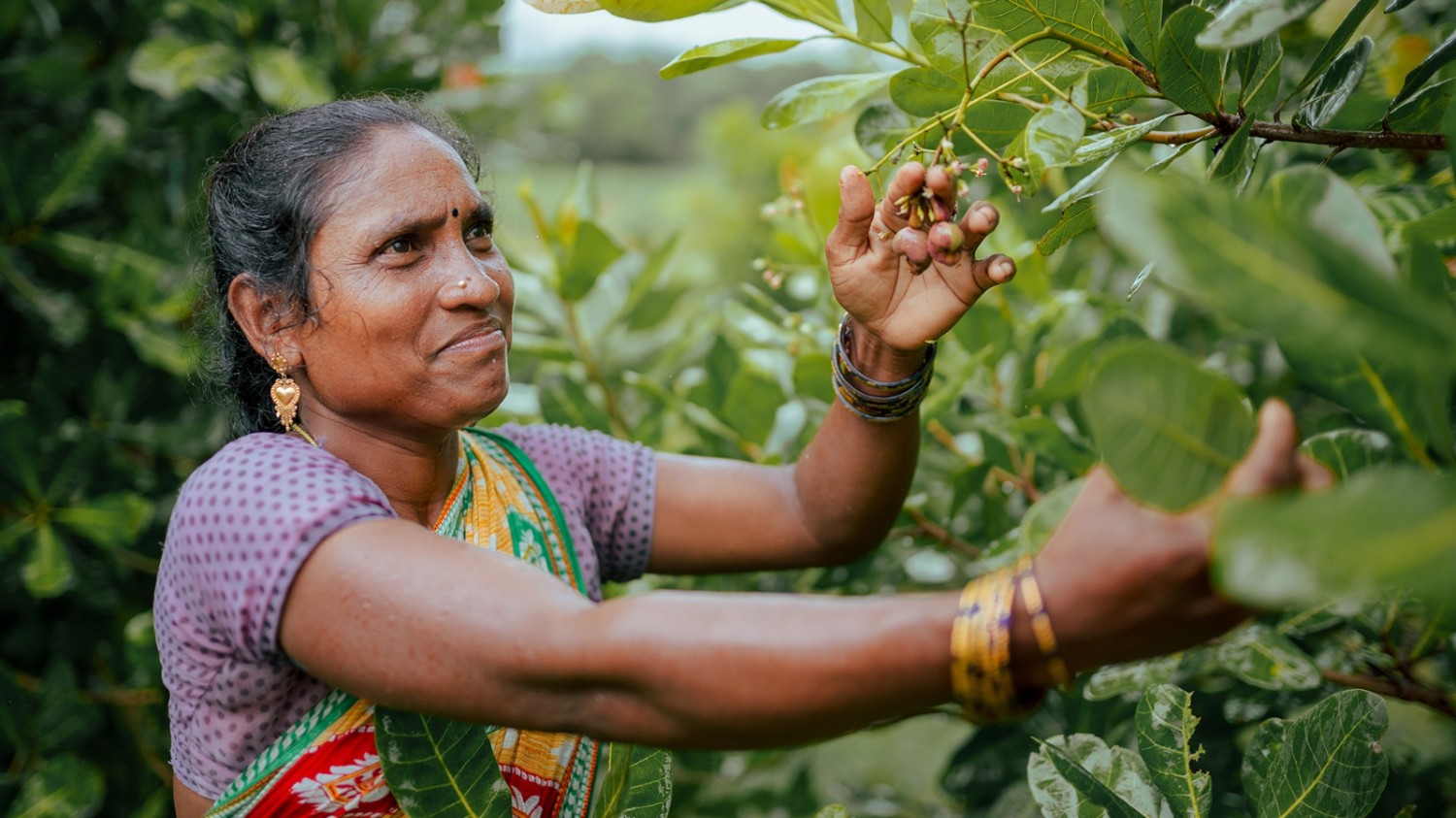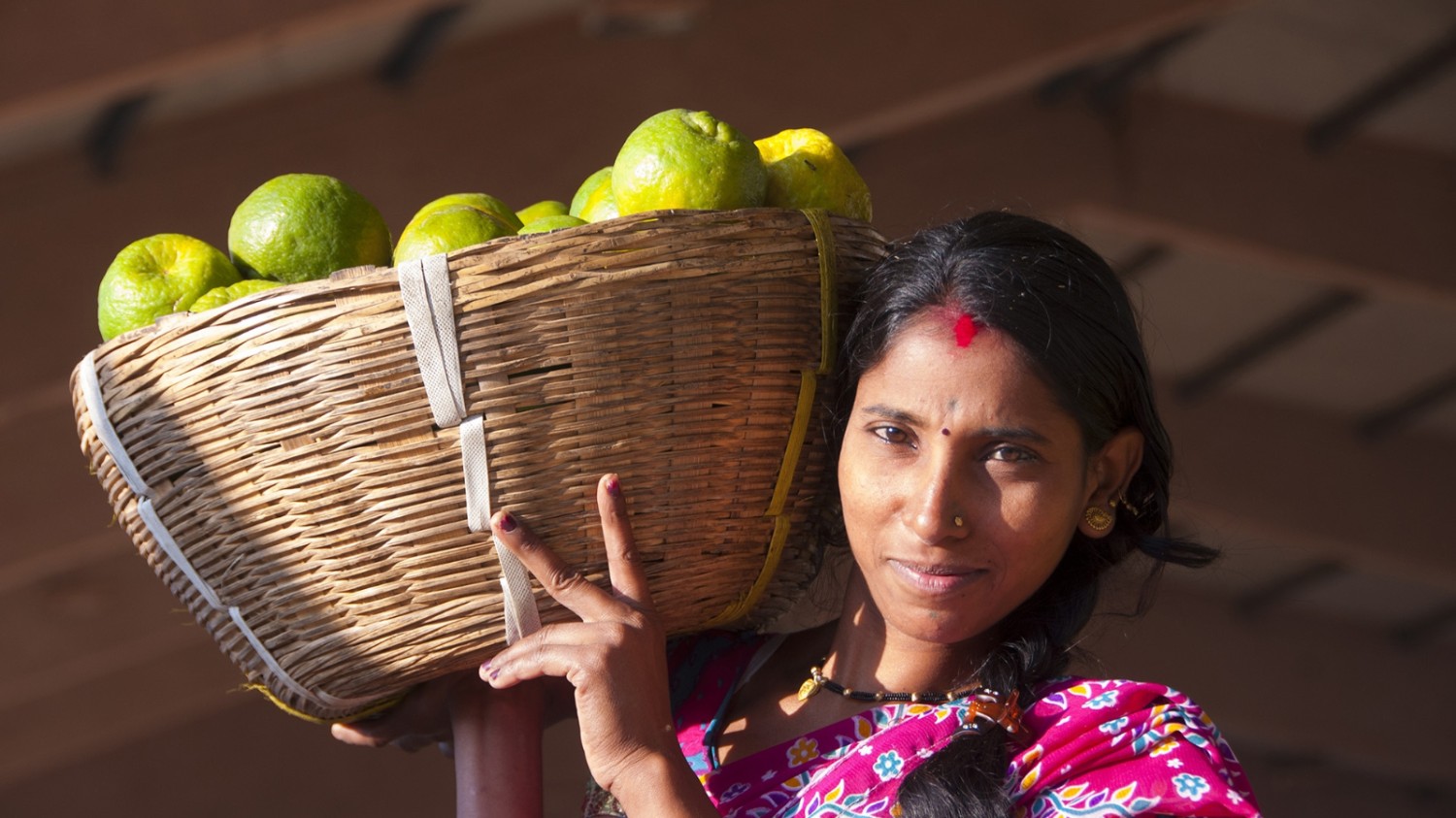Supplier Opportunity
SASB: FB-FR-430a.3
GRI: 2-6, 3-3, 204-1
UN SDG: 5
S | Published: May 19, 2023

Our Aspiration
Through sourcing, Walmart intends to delight our customers around the world while promoting inclusive economic growth and development. We aim to create economic opportunities for the people who work throughout our supply chains — our suppliers, the people they employ, and their communities.
Key Goals & Metrics
Goal |
Metrics |
FY2021 |
FY2022 |
FY2023 |
| Between 2013-2023, purchase an incremental $250 billion in products supporting American jobs | Incremental cumulative total purchases | $145 billion | $196 billion | > $250 billion |
| Between 2021-2030, purchase an incremental $350 billion in products supporting American jobs | Incremental cumulative total purchases | $12 billion | $47 billion | |
| Number of diverse suppliers to our U.S. businesses — goods and services1 | ~ 2,900 | ~ 2,600 | ~ 2,400 | |
| Amount sourced from diverse suppliers to our U.S. businesses — goods and services | > $13 billion | > $13.3 billion | > $13 billion | |
| Walmart Foundation grants to support smallholder farmers in Central America, India, and Mexico (cumulative since 2017) | > $52 million | > $67 million | > $86 million | |
| By 2027, triple exports of goods from India to $10 billion | ~ $3.4 billion | |||
| Between 2018-2022, Walmart Foundation to invest $25 million to strengthen smallholders in farmer producer organizations and farm yields in India | Cumulative investment since 2018 | > $20 million | > $29 million | > $39 million |
Relevance to Our Business & Society
The core of our business is bringing quality, affordable food and other products to our hundreds of millions of customers around the world. The purchase orders we place to procure those products can have a profound and positive effect. Strategically sourcing products from a mix of large, small, diverse, and local suppliers supports the economic inclusion of suppliers who might not otherwise have the opportunity to bring their products to market, helps existing suppliers to grow, provides opportunities for members of underrepresented communities to thrive, and stimulates job growth in the markets in which the products are made. For Walmart, these strategies enhance our ability to offer a broader assortment of unique and hard-to-find products to our customers and can improve surety of supply and supply chain resilience.
Walmart’s Approach
Through sourcing, Walmart aims not only to delight our customers but also to provide opportunities for the economic growth and development of people who work throughout our supply chains — our suppliers, the people they employ, and their communities.

More than two-thirds of Walmart U.S.’ total product spend was on items made, grown or assembled in the United States and other Walmart markets also have substantial local sourcing. Because of the desire to meet customer demand for variety, quality, and affordability of products ranging from mangoes to electronics, we also source products from around the world.
As part of our local and global sourcing programs, we pursue several special programs and initiatives focused on building a more inclusive and diverse supplier base and contributing to local economies. These programs and initiatives include:
- U.S. Manufacturing: Make transformative investments to strengthen American manufacturing, support small businesses, create new jobs, and provide more value to our customers and communities.
- Supplier Inclusion: Source from and build the capacity of diverse suppliers, including suppliers owned and/or operated by women and people of color.
- Make in India: Triple exports of goods from India to $10 billion per year by the end of 2027, building on the success of the Vriddhi program we launched in 2019.
- Market Access for Smallholder Farmers and Small Producers: In Central America, India, and Mexico, source directly from smallholders and/or small producers and invest through philanthropy in facilitating market access and building capacity of smallholders across the sector.
Key Strategies & Progress
U.S. Manufacturing | Supplier Inclusion | Make in India | Market Access for Smallholder Farmers & Small Producers
U.S. Manufacturing
By sourcing products made, grown, or assembled in the U.S. and our American Lighthouses work, we seek to help grow business ecosystems across America.
U.S. Sourced Products
Walmart has a long history of supporting products made in, grown in, or sourced from America. More than two-thirds of Walmart U.S.’s total product spend in FY2023 was on items our suppliers reported were made, grown, or assembled in the United States. We have also committed to an incremental investment in products that support the creation of American jobs through our America at Work initiative:
- In FY2023, we satisfied the commitment to invest an incremental $250 billion over our FY2013 purchases on products made, grown, or assembled in the United States before 2023.
- In March 2021, Walmart committed to investing an incremental $350 billion over our FY2021 purchases on products made, grown, or assembled in the United States over ten years. As of the end of FY2023, we have increased cumulative U.S. receipts by $47 billion towards that goal.
We expect our commitment to U.S. manufacturing to catalyze the expansion of businesses across the country: we estimated that our most recent ten-year commitment has the potential to support more than 750,000 new jobs and avoid more than 100 million metric tons of emissions.2 For example, longtime Walmart supplier Classic Fashion announced a new California cut-and-sew apparel facility in October 2022. The facility is expected to create 125 jobs by 2023 and an additional 225 jobs over five years.
In June 2022 Walmart hosted our ninth annual Open Call for shelf-ready products made, grown, or assembled in the U.S. More than 1,100 small- and medium-sized enterprise (SME) owners from across the country pitched their products to Walmart U.S. and Sam's Club merchants. Preliminary results indicate that more than 330 of those pitches resulted in a deal for businesses to sell their items to Walmart customers through placement on Walmart or Sam’s Club shelves, online at Walmart.com or on Walmart’s Marketplace. Nearly 60% of business owners invited to Open Call in 2022 self-identified as diverse-owned; more than 40% of these diverse owned businesses continued discussions for potential deals.
For more tools and resources for suppliers, visit our Jobs in U.S. Manufacturing Portal (JUMP).
American Lighthouses
To support our own sourcing and the growth of U.S. manufacturing at large, Walmart launched a collaborative initiative called “American Lighthouses” in 2021 to identify and overcome top-down barriers to U.S. production. Through this initiative, we aim to foster collaborative ecosystems among local supplier communities with support from civil society, academia, government, and local economic development groups. Our focus is on five key supply chains: textiles, pharmaceutical and medical supplies, food processing, plastics, and motors and metals. Work underway as of FY2023 includes:
- Textiles: We formed a Textiles Lighthouse Advisory Board, comprised of experts from multiple fields and industries, to guide Walmart’s efforts to strengthen U.S. textiles manufacturing, create American jobs and bolster the domestic textiles supply chain, including through boosting circularity in U.S. Manufacturing.
- Pharmaceutical/Medical Supplies: Walmart joined the Alliance for Building Better Medicine, an initiative that seeks to create a pharmaceutical research, development, and manufacturing hub in the Richmond/Petersburg area of Virginia.
- Food production and processing: Seeking to spur the indoor vertical farming industry in the United States, in January 2022 Walmart entered into a sourcing agreement with Plenty to source leafy greens for Walmart's California stores. Walmart also made an equity investment in Plenty, making Walmart the first large U.S. retailer to significantly invest in vertical farming.
Supplier Inclusion Program
Walmart's Supplier Inclusion Program helps Walmart diversify and enhance our product offering to better meet customer needs while helping to foster equity and inclusion for suppliers. The program focuses on companies at least 51% owned, managed, and controlled by racial and ethnic minorities, women, veterans, members of the LGBTQ+ community, and people with disabilities, helping put them on equal footing to effectively work with us while at the same time growing their business. Our U.S. businesses sourced more than $13 billion in goods and services from approximately 2,400 diverse suppliers in FY2023.
While Walmart merchants make product sourcing decisions, they are supported by a Supplier Inclusion team and an internal Supplier Inclusion Advisory Council. The Supplier Inclusion team seeks out qualified diverse suppliers at business conferences, product and procurement fairs, expos, and similar events and fields incoming requests from suppliers interested in doing business with Walmart. The Council provides guidance and recommendations to Walmart merchant teams, the Supplier Inclusion team, and executive leadership on how to best engage and develop diverse suppliers.
Beyond sourcing, we support diverse suppliers and inclusive sourcing through the following:
- We partnered with C2FO to expand our early payment program to help diverse- and minority-owned suppliers increase their cash flow. The program accelerates payment of approved invoices to as little as within 48 hours of submission. From launch to the end of FY2023, the early payments program has provided financing for more than 300 diverse suppliers, issuing $1.8 billion in early payments.
- We built upon our Open Call concept by expanding our partnership with RangeMe/ECRM to launch a diverse-supplier submission link on our Supplier Inclusion home page. The link allows diverse suppliers to propose new products for sale at Walmart by submitting their products for review to our merchants and to receive real-time feedback through the technology-driven platform.
- In 2023, Walmart and Citi introduced Bridge built by CitiSM to Walmart suppliers. This platform will help improve access to capital for Walmart’s U.S. small and medium-sized and diverse supplier base through a network of over 70 lenders, including 20+ diverse financial institutions, driving financial inclusion for diverse businesses. Through a single loan request form, Walmart suppliers can interact with a broad group of lenders located across the United States. Once a request is submitted, the platform seamlessly connects suppliers with multiple potential lenders that can evaluate their requests.

Recognition for U.S. Supplier Inclusion Program
Select 2022-23 Awards:
- Currently one of America's Top Corporations for Women's Business Enterprises — the Women’s Business Enterprise National Council (WBENC)
- 2023 – Minority and MultiCulture News(MBN) USA BEST OF THE DECADE award
- 2022 – Five-Star Procurement, Employment, and Governance ratings from the Hispanic Association on Corporate Responsibility’s Corporate Inclusion Index
- 2022 – Top 50 Companies for Diversity List — DiversityInc
- 2022 Best of the Best Top Disability-Friendly Companies List — DIVERSEability magazine
Recent Best of the Best Top Supplier Program Lists:
- 2022 — Black EOE Journal
- 2021 — Hispanic Network Magazine
- 2021 — U.S. Veterans Magazine
- 2022 — Professional Women’s Magazine
For more information on our supplier inclusion work, please see our Supplier Inclusion website.
Make in India for the World
Walmart has sourced goods from India for more than 20 years, supporting local suppliers to build their capabilities and develop new product lines to meet international standards. In December 2020, Walmart announced it would seek to triple its exports of goods from India to $10 billion per year by the end of 2027. As of the end of FY2023, Walmart has reached approximately $3.4 billion in exports from India.
Achieving the $10 billion goal will require building the capabilities of suppliers, including to be effective exporters. Both Walmart and Flipkart focus on building supplier capacity, including through the following:
- Flipkart’s Samarth initiative, which helps micro-, small- and medium-enterprises (MSMEs) register for and succeed in online sales. The initiative recently reached the milestone of positively impacting 1.5 million livelihoods across India;
- Walmart’s Vriddhi Supplier Development Program (Walmart Vriddhi) launched in 2019, which aims to train and prepare 50,000 of India’s MSME's to “Make in India”. In collaboration with Swasti, Walmart Vriddhi provides a learning platform that includes market access and onboarding with Flipkart Marketplace, free training and in-depth expert support to entrepreneurs and small businesses. In 2022, Swasti signed memorandums of understanding with the governments of Haryana, Madhya Pradesh, Tamil Nadu and Uttar Pradesh to provide training for MSMEs through Walmart Vriddhi. In January 2023, Walmart Vriddhi celebrated the graduation of 25,000 MSMEs from the program.
- A 2022 Walmart MoU signed with National Small Industries Corporation (NSIC) which aims to accelerate MSMEs across India in their journey toward becoming a part of retail supply chains.

Market Access for Smallholder Farmers & Small Producers
Through sourcing and philanthropy, we aim to help connect smallholder farmers and small producers to domestic markets while strengthening their capacity and resilience.
Sourcing from Smallholders & Small Producers
We aim to use our scale to benefit suppliers and one way to do this is to buy directly from local suppliers. Ninety-two percent of our suppliers in Mexico are small- and medium- enterprises and over 80 percent of the merchandise sold in Central America is purchased from the region. Walmart Mexico also has specialized supplier development programs focused on small and medium enterprises, including Adopta Una PyMe ("Adopt a SME"), Una Mano Para Crecer ("A Helping Hand to Grow"), Tierra Fértil ("Fertile Soil"), and Pequeño Productor ("Small Farmer").3 In 2022, we purchased a total of more than 1.98 billion pesos from farmers through the Central America Tierra Fértil Direct Farm program. Through the Pequeño Productor program, small suppliers saw a nearly 80 percent increase in income in 2022. See the 2022 Walmart Mexico and Central America Report for further detail.
Our South Africa subsidiary, Massmart, promotes the growth of high potential SME’s through a combination of improved vendor payment terms, and business advisory support on topics like packaging rationalization and managing energy insecurity. This work builds on the previous Supplier Development Program (SDP), a ten-year program to help suppliers to increase competitiveness by meeting product quality standards, investing in bespoke manufacturing equipment to build capacity and providing retail and business management training. Massmart procured over R1.5 billion from suppliers in this program, with a focus on black-owned and black women-owned enterprises.
Philanthropic Investments to Build Smallholder Capacity
Since 2017, the Walmart Foundation has awarded grants of over $86 million to benefit smallholders in India, Mexico, and Central America. These grants are expected to reach over one million smallholder farmers, of whom over 50% are women. These grant programs aim to enhance farmer livelihoods and value chains, encourage the adoption of sustainable agriculture practices, unlock access to finance, grow formal market linkages, strengthen Farmer Producer Organizations (FPOs), and empower women farmers in FPOs.
Commitments to Strengthen Smallholders
The Walmart Foundation made a commitment to investing $25 million to strengthen smallholders in farmer producer organizations and farm yields in India between 2018 and 2022. That commitment was completed in FY2023 with over $39 million invested through 24 grant programs with 16 grantees. Over the life of the program, the grants were cumulatively expected to:
- Reach over 800,000 smallholder farmers, of which over half are expected to be women4
- Support over 500 farmer producer organizations and farmer producer groups
- Span the states of Andhra Pradesh, Uttar Pradesh, Telangana, Karnataka, Odisha, Jharkhand, West Bengal, Maharashtra, and Madhya Pradesh
In 2023, Walmart and the Walmart Foundation announced a new commitment to fund projects in India designed to help build capacity and advance the economic livelihoods of one million smallholder farmers by 2028 with at least 50% women.4 Under this commitment, new Walmart Foundation grants will build on the insights of a new impact study conducted by Sambodhi, which assessed Walmart Foundation’s investments thus far in enhancing livelihoods and incomes for Indian FPOs. The study indicated that interventions by implementing partners contributed to strengthened systems and processes at the FPO level, higher FPO revenues and profitability, and increased representation of women at the farm level and in FPO leadership.
Other Market Access Initiatives
In 2021, the Walmart Foundation published insights from the global Market Access portfolio in Seeding advancement of women in smallholder farming: insights from the Market Access portfolio and a series of farmer stories to highlight program best practices and the benefits derived by smallholder farmer participants. Example Market Access efforts include:
- Root Capital: Launched in July 2021, Root Capital’s Gender Lens Investing initiative uses an innovative financing approach to provide much-needed credit to gender-inclusive and women-led businesses in Central America and Mexico. Root Capital expects the Walmart Foundation's support to enable it to disburse an additional $25 million of investor capital to benefit more than 12,000 farmers and employees.
- International Food Policy Research Institute (IFPRI): The Walmart Foundation supported an initiative by IFPRI (Applying New Evidence for Women's Empowerment) to adapt its project-level Women's Empowerment in Agriculture Index by developing new empowerment metrics for market inclusion interventions, including for FPOs and collectives. Four Walmart Foundation Market Access grants will pilot the metrics in collaboration with IFPRI (Professional Assistance for Development Action [PRADAN] in India, Grameen Foundation in India, TechnoServe in Guatemala, and Root Capital in Mexico).
- Professional Assistance for Development Action (PRADAN): The PROWFIT program intends to build on a previous Walmart Foundation grant by supporting 60 women-led Farmer Producer Organizations (FPOs). The program aims to empower nearly 120,000 women in India to create viable smallholder businesses, especially women farmers in the tribal regions of eastern states of the country.
- Tata-Cornell Institute for Agriculture (TCI): The Walmart Foundation funded the launch of a Farmer Producer Organization Hub as part of TCI's Center of Excellence. The Hub aims to create lessons, tools, and resource pathways to strengthen small farm aggregators while simultaneously catalyzing a community of practice of funders, implementers, and policy stakeholders. An integral part of the FPO Hub is TCI’s Database for Indian FPOs. The database brings together information on thousands of FPOs to facilitate research on small-farm aggregation models.

Learn more about the smallholder farmers and entrepreneurs programs at Walmart.org.
Challenges
- Systematic societal disparities along racial, gender, religious and other lines can inhibit the development of a diverse supplier ecosystem, despite the best efforts of Walmart and others to enhance supplier inclusion.
- A lack of effective public policy solutions to meaningfully advance racial equity in societal systems hinders progress.
- Walmart’s size and scale can create challenges for qualified small, diverse, and local suppliers.
- It can be difficult to identify the biggest barriers to becoming a supplier to a large enterprise like Walmart and to create effective programs to help potential suppliers overcome those barriers.
- Small suppliers may have difficulty engaging at the level necessary to build adequate capacity to supply Walmart or other large enterprises at scale.
Additional Resources
Endnotes
1. A diverse supplier is defined as a U.S. privately held company that is recognized as at least 51% owned and operated by a woman, minority, veteran, disabled veteran, a person with a disability, or a member of the lesbian, gay, bisexual, transgender, or queer (LGBTQ+) community. All references to "diverse suppliers" in this brief follow this definition.
2. Per Boston Consulting Group using data from the Economic Policy Institute and Bureau of Labor statistics.
3. For more information on these programs see Walmex 2022 Report.
4. As reported by grantee organizations. Farmers may benefit from more than one investment or program. Each engagement will be included in calculating total reach.



